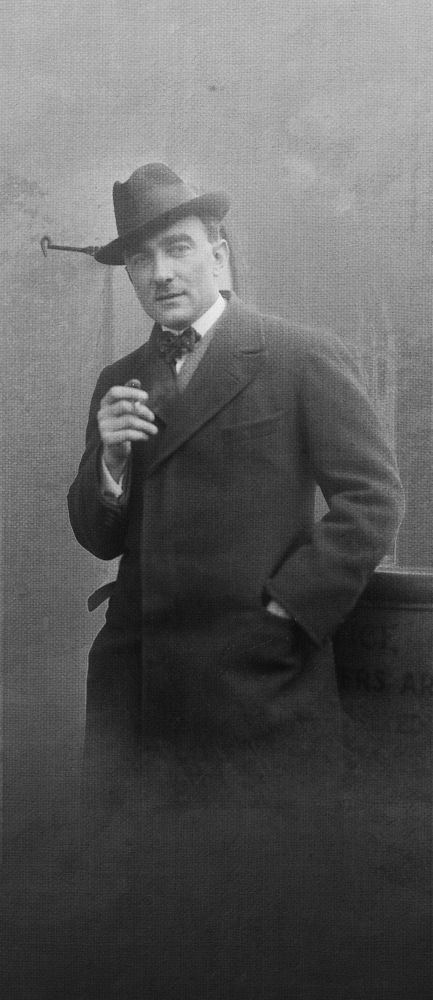
Karol Szymanowski
composer and pianist
(born on 03.10.1882 in Tymoshivka, died on 29.03.1937 in Lausanne, Switzerland)
The music was written by a champion! Frantically we read all the manuscripts, and our enthusiasm and excitement grew along with realization that here we have discovered a great Polish composer - Artur Rubinstein about the work of Karol Szymanowski in his autobiography, My Young Years
Karol Szymanowski is recognized, next to Frédéric Chopin, as the most outstanding Polish romantic composer. His operas, symphonies and piano compositions are a permanent feature of today's concerts and music festivals.
Young Szymanowski grew up in the Ukraine, which was then part of the Russian Empire. He came from a musical family - his father played the piano and cello, his sister was a singer and his brother, a pianist. It is no wonder that Karol too began an intensive musical education when he was just a few years old.
Most of the time, due to a permanent disability of one of his legs, Szymanowski spent at home. Despite this, he successfully completed a high school diploma, and in 1903 he went on a two-year training to Berlin, where he met his musical maestro, Richard Strauss. It was under the influence of the German composer that Szymanowski began to create his first symphonies.
The period of the First World War passed under the sign of Szymanowski's fascination with romanticism and impressionism. Chopin and his lyrical works were the role model for the young composer, but he also drew a lot from the German classics.
In 1914 Szymanowski, tired of the traditional forms of composition, embarked on an inspiring journey to North Africa. He also visited Italy once again. Thanks to the acquired experience and fascination with foreign cultures, he began to incorporate oriental and Mediterranean motifs into his work. It was not the end of Szymanowski's musical experiments. Influenced by his frequent stays in Zakopane, he became interested in the local highland folklore.
Szymanowski gained great renown during the interwar period. In 1921 along with other prominent musicians - Paweł Kochański and Artur Rubinstein – he went to tour the United States. A year later he successfully performed in Paris. His permanent residence was in Warsaw at Nowy Świat street and he held the position of rector of the nearby Warsaw Conservatory of Music.
Composer showcased his talents in high society, surprising with not only his enormous musical talent, but his unusual way of being. Szymanowski was an open homosexual, to which he alluded in his works - the opera King Roger and the novel Efebos, written specifically for his 15-year-old lover, a Russian dancer Boris Kochno.
From 1930 Szymanowski stayed in Villa Atma in Zakopane. The mountain air would help him cope with his tuberculosis . Despite this, his illness progressed. The composer died in 1937 in the Du Signal clinic in Lausanne. His funeral was held in Kraków. That's also were the musician was buried - in the Krypta Zasłużonych na Skałce (The Crypt of the Notables on the Rock), called the Graveyard of Great Poles.
Do you know ?
- Szymanowski composed a total of 79 pieces. These are operas, symphonies, numerous piano compositions - sonatas, preludes, etudes, variations, mazurkas - as well as pieces for voice, choir and orchestra.
- Living in the apartment at Nowy Świat was quite a chore for Szymanowski's. To get to the apartment located on the second floor, the disabled composer had to climb several levels of steep stairs.
- Szymanowski's heart was placed in the chapel in the church of the Holy Cross in Waraw at Krakowskie Przedmieście street. It went up in flames during the Warsaw Uprising in 1944.
- 2007 – the 125 anniversary of the composer's birth - was announced by the Polish Sejm as a year of Karol Szymanowski. On this occasion, a series of cultural events, exhibitions and concerts were organized, and the Polish National Bank put into circulation coin with the image of the musician.






